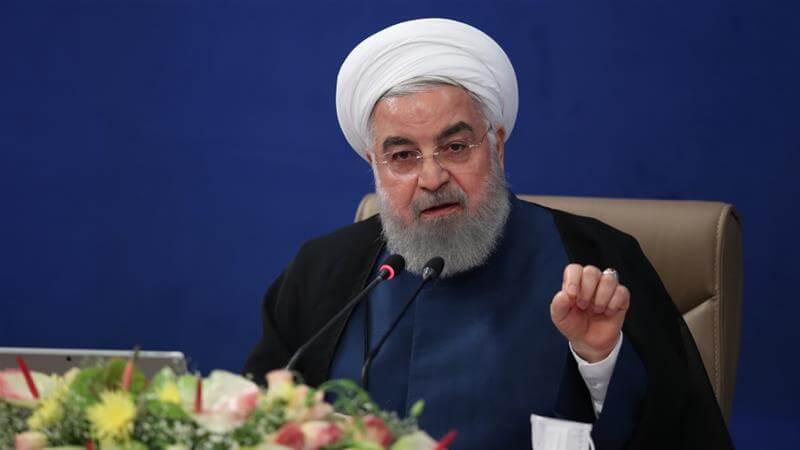The historic peace deal normalizing relations between Israel and the United Arab Emirates announced Thursday following a call with President Donald Trump was mostly met with enthusiastic optimism around the world, but the regime in Iran has been quite vocal in opposing the deal.
“They (the UAE) better be mindful. They have committed a huge mistake, a treacherous act. We hope they will realize this and abandon this wrong path,” Iran President Hassan Rouhani stated in response to the agreement.
In his televised speech, President Rouhani warned the UAE of giving Israel a “foothold in the region.”
The Iranian daily Kayhan, whose editor-in-chief is appointed by Supreme Leader Khamenei, wrote on its website that “the UAE has turned itself into a legitimate target for the resistance” and that this deal was a “great betrayal of the Palestinian people.”
The Revolutionary Guards Corps even warned that it would “accelerate the process of the destruction of the child-killing Zionist regime.”
The deal, also referred to as the Abraham Accord, makes the UAE the third Arab nation, following Egypt and Jordan to formalize relations with Israel.
In exchange, Israel has agreed to suspend its annexation plans in the West Bank.
In response to the news, a small protest broke out in front of the UAE embassy in Tehran Saturday.
The UAE has since responded to President Rouhani’s threats, with the foreign ministry summoning the charge d’affaires and delivering a “strongly worded memo” according to Emirati state news agency WAM, citing his words were “unacceptable and inflammatory.”
The secretary general of the Gulf Cooperation Council (GCC) condemned the threats made by Iranian officials regarding the agreement.
With this deal, Israel and the UAE will be able to establish embassies, exchange ambassadors, have direct flights to and from one another, and UAE citizens can visit the Al-Aksa mosque in Jerusalem.
President Trump remarked that “opening direct ties between two of the Middle East’s most dynamic societies and advanced economies will transform the region by spurring economic growth, enhancing technological innovation, and forging closer people-to-people relations.”









